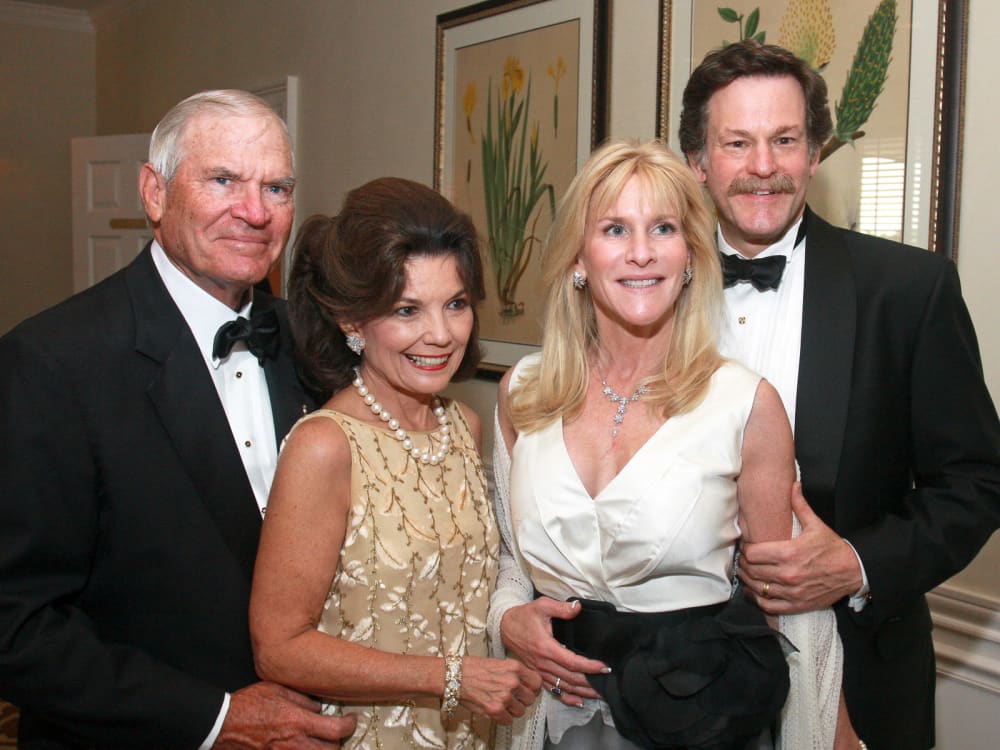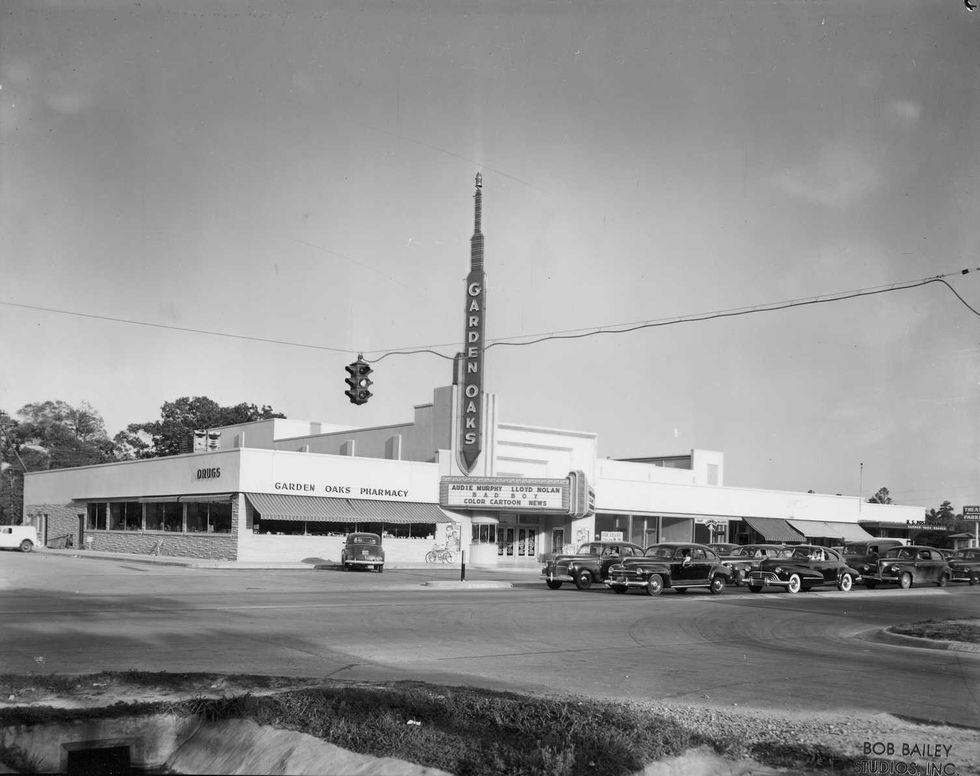The CultureMap Interview
UTHealth prez Dr. Larry Kaiser talks about the name change, the future ofmedicine & why he still scrubs into the OR
 Dr. Larry Kaiser continues to perform surgery, which is rare for a person in hisposition as president of a large science centerPhoto by Dwight C. Andrews
Dr. Larry Kaiser continues to perform surgery, which is rare for a person in hisposition as president of a large science centerPhoto by Dwight C. Andrews The future is now :A new UT Physicans practice recently opened in SiennaPlantation.
The future is now :A new UT Physicans practice recently opened in SiennaPlantation. Dr. Faith Atai listens to the heartbeat of a pediatric patient at the UTPhysicians Sienna Village Clinic.Photo by Dwight C. Andrews
Dr. Faith Atai listens to the heartbeat of a pediatric patient at the UTPhysicians Sienna Village Clinic.Photo by Dwight C. Andrews Kaiser has cultivated Houston's old guard philanthropists to give to the sciencecenter. Its first annual "Celebration of Transformation and Hope" dinner drew inan A-list crowdPhoto by Gary Fountain
Kaiser has cultivated Houston's old guard philanthropists to give to the sciencecenter. Its first annual "Celebration of Transformation and Hope" dinner drew inan A-list crowdPhoto by Gary Fountain Construction continues on the new home of the University of Texas Dental Branch,south of the original Texas Medical Center. UTHealth’s new Behavioral andBiomedical Sciences Building is in the background.
Construction continues on the new home of the University of Texas Dental Branch,south of the original Texas Medical Center. UTHealth’s new Behavioral andBiomedical Sciences Building is in the background. UTHealth’s Behavioral and Biomedical Sciences BuildingPhoto by Dwight C. Andrews
UTHealth’s Behavioral and Biomedical Sciences BuildingPhoto by Dwight C. Andrews
Since he was appointed president of the University of Texas Health Science Center at Houston two years ago, Larry Kaiser has been a busy man. Saddled with an unwieldy name, the center that encompasses six schools, including medical, dental, nursing, public health, biomedical informatics and a graduate school of biomedical sciences, has embarked on a rebranding program under a new name: UTHealth.
Kaiser has also beseeched the Texas legislature for more funding and has worked to pry high-dollars from old guard Houstonians. (Last spring, George Mitchell gave $1.5 million to the school at a dinner honoring James A. Baker III and Dr. Denton Cooley at the first-ever such fundraiser.)
"Being the new kid on the block we have some real challenges in terms of competing with established institutions like Baylor, Texas Children's, M.D. Anderson and Methodist Hospital," Kaiser noted during a recent interview, pointing out that the health science center was established in 1972, much later than others in the Texas Medical Center. "The biggest thing is getting out the message that there's a lot going on here."
CultureMap: What have been your greatest accomplishments? And your greatest challenges?
Larry Kaiser: Making the community more aware of who we are. What became apparent to me, even prior to coming here, was a lack of recognition. There was very little understanding of what we did and there wasn't a lot of interaction among the schools. We've gotten the schools to work more closely together in things like our aging program. We've been very successful in recruiting some outstanding individuals here in the research side as well as the clinical care side.
In terms of challenges, state funding is difficult. And it's a competitive market, too. One of our challenges in tough economic times is philanthropy. Places like ours are very dependent on the generosity and largess of the community.
CM: Why did you change the name to UTHealth?
LK: It was pretty obvious there was a lack of understanding in the community about our long name, which is still our name. A lot of people really didn't know what a health science center was. Rebranding us as UTHealth will better allow us to better establish an identity. A lot of people don't know that UT physicians are closely associated with Memorial Hermann Hospital — even something that basic is not well-known.
CM: Will that include signage?
LK: Yes. Right now the signage is inconsistent. You see The University of Texas in Houston, you see Health Science Center, you see UT-Houston. You will see some consistency. We'll start smaller, though, with business cards and stationery rolled out next month. Signage will ultimately come. But our URL is UTHouston. That's more difficult to change.
CM: How will the institution be affected by changes in health care?
LK: First of all, you will see more people become insured, which is a good thing. The fact that 45 million people are uninsured in a country as wealthy as ours is embarrassing. But are there going to be enough people to provide that health care?
In this state and all over the country there is a shortage of people providing primary health care. Getting access is going to be more difficult. We've addressed that in several ways. We have a program in our nursing school where we are training advance practice nurses to provide primary care. Nurses are going to be on the front line providing primary care, along with physicians. We're working hard to promote that.
- Access is clearly going to be an issue. There are still going to be uninsured people in Texas. Working with our partners in the Harris County Hospital District, it is going to be challenging to continue to take care of the uninsured.
- The uncertainly with Medicare is something we have concerns about. Built into the health care legislation is a significant reduction in Medicare expenditures. And yet with the baby boomers, we're having more come onto the Medicare rolls. Where (the federal government) will be taking money out of Medicare remains to be seen. But if it means a decrease in services provided, it's going to be a problem.
- And there are lots of unknowns. We don't know what the consequences are at this point. But we're here to stay. We have a large physician practice and we're committed to taking care of the people in this region and providing expertise in all specialties. We'll figure out the reimbursement aspects later.
CM: Five years from now what will UTHealth look like?
LK: We have continued to move further out in the community. We just opened a beautiful practice in Sienna Plantation so we can have UT physicians in the community. We will be in Cinco Ranch as well. I think you will see UT physicians providing outstanding speciality care as well as augmenting primary care. We will continue to provide outstanding speciality care here in the Texas Medical Center.
You will see some innovative programs to promote health and wellness and some innovative models between hospitals and physician practices to reduce health care expenditures. You will see a closer relationship between UT Physicians and Memorial Hermann, even than exists today, and it's very close.
CM: Correct me if I'm wrong, you're a surgeon but you no longer practice?
LK: No, I still practice. I'm a thoracic surgeon.
CM: That's rare for a person in your position. How to you fit that in?
LK: You just plan it in advance. But I'm helped tremendously by a young thoracic surgeon (Dr. Farzaneh Banki) who I work closely with, so I am able to practice in a cooperative way.
CM: How does that make you a better administrator?
LK: I'm at the hospital regularly so I see what's going on there. I think that being part of the medical practice keeps me somewhat more in touch. I never intended to give up the practice. It's a challenge to practice, but I think it's a practice that's well worth pursuing. You see the real world.


